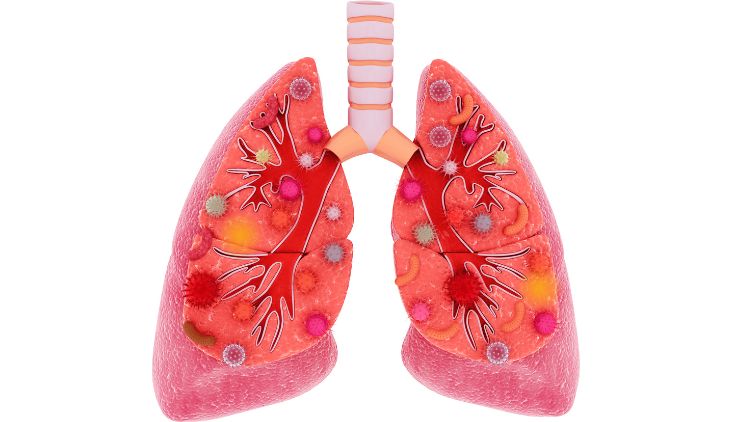Recognizing Early Symptoms and Treatment Options
Lung cancer is a serious disease, and knowing the signs and symptoms can help you seek medical advice early. Early detection of lung cancer may improve treatment results. In this article, we will look at ten warning signs of lung cancer and list some common treatments.
Common Warning Signs of Lung Cancer
1. Persistent Cough
A cough that does not go away is one of the most common signs of lung cancer. This cough may last for weeks or months and become worse over time. A persistent cough can be a sign that something is not right in the lungs.
2. Dyspnea (Shortness of Breath)
Dyspnea means having trouble breathing or feeling short of breath. This symptom may happen at first during physical activity, but it can also occur at rest. Lung cancer can block airways or cause fluid to build up around the lungs, making it hard to breathe.
3. Chest Pain
Chest pain can occur with lung cancer when the tumor grows or presses on nearby tissues and nerves. This pain may be a sharp or dull ache and it often gets worse when you breathe in, cough or laugh. While chest pain can be caused by many different factors, it should never be ignored.
4. Wheezing
Wheezing is a high-pitched whistling sound heard when breathing out. When the airways in the lungs become narrow because of a tumor or inflammation, the air passing through can cause a wheeze.
5. Hemoptysis (Coughing up Blood)
Coughing up blood, known as hemoptysis, is a serious sign that should be checked immediately. Even a small amount of blood can be alarming. Lung cancer can cause bleeding inside the lungs, which may lead to blood when coughing.
6. Hoarseness
Lung cancer can affect the nerves that control the vocal cords. This can cause your voice to sound hoarse or raspy. The hoarseness may start suddenly or develop over time. Even if the voice loss seems minor, you should see a doctor if it lasts for more than a few weeks.
7. Shoulder Pain
Pain in the shoulder is another symptom that might be linked to lung cancer. The nerves in the shoulder and neck can be affected when a tumor grows or spreads. This is why some people with lung cancer feel pain in their shoulder area.
8. Superior Vena Cava Syndrome
Superior vena cava syndrome happens when a tumor presses on the large vein called the superior vena cava. This vein carries blood from the upper part of the body back to the heart. When the vein is squeezed, it can cause swelling in the face, neck and upper arms. This swelling can be painful and may make breathing difficult.
9. Horner's Syndrome
Horner's syndrome is a rare condition that can be a sign of lung cancer. It happens when a tumor affects nerves that control the eye and face. People with Horner's syndrome may notice a drooping eyelid, a smaller pupil or less sweating on one side of the face. Although it is rare, any changes in the eye or face should be evaluated by a doctor.
10. Unexplained Weight Loss
Unexplained weight loss means losing weight without trying, without changing your diet or without exercise. In lung cancer, the body may use up energy quickly because of the cancer cells. This can lead to weight loss that is not planned. Losing weight without a reason can be a sign that something is wrong, so check with your doctor if you notice it.
Lung Cancer Treatments
If lung cancer is found early, treatment can be more effective. The choice of treatment depends on the size, location and stage of the cancer. Here are common treatments for lung cancer.
- Surgery. Doctors may remove the tumor through surgery. This is often a first choice for treatment.
- Radiofrequency ablation. This treatment uses heat energy to destroy cancer cells.
- Radiation therapy. Radiation is used to kill cancer cells or reduce the size of a tumor.
- Chemotherapy. Chemotherapy uses drugs to stop the growth of cancer cells.
- Targeted drug therapy. This treatment uses drugs to attack specific cancer cells without harming many healthy cells.
- Immunotherapy. Immunotherapy helps your body’s own immune system to fight the cancer cells.
Lung cancer is a serious condition, but with early detection and modern treatments, many people can receive the care they need. Stay informed and do not hesitate to seek help if you are worried about your symptoms.
